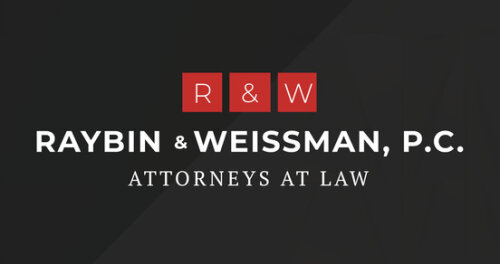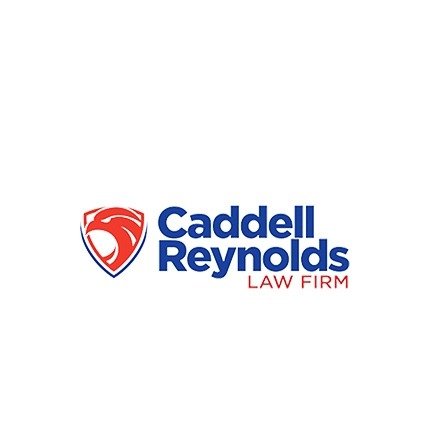Best Truck Accident Lawyers in Arkansas
Share your needs with us, get contacted by law firms.
Free. Takes 2 min.
Or refine your search by selecting a city:
List of the best lawyers in Arkansas, United States
About Truck Accident Law in Arkansas, United States
Truck accident law in Arkansas refers to the set of legal rules and regulations that govern collisions and incidents involving large commercial vehicles, such as 18-wheelers, tractor-trailers, and delivery trucks. Because commercial trucks are larger and heavier than typical passenger vehicles, accidents involving them can result in severe injuries, significant property damage, and complex legal claims. These cases often involve multiple parties, strict state and federal safety regulations, and substantial insurance policies.
In Arkansas, victims of truck accidents are generally entitled to seek compensation for their injuries, lost wages, property damage, and other losses. The process can be complicated due to the involvement of trucking companies, drivers, insurance adjusters, and sometimes even manufacturers or third-party maintenance providers. Navigating these cases often requires a specialized understanding of both state and federal commercial vehicle laws.
Why You May Need a Lawyer
Truck accident cases can be significantly more complex than ordinary car accident claims. Here are common situations where legal help may be necessary:
- Your injuries are severe or you are facing long-term disability
- There are fatalities or life-threatening injuries involved
- The fault is disputed or multiple parties may be responsible
- The trucking company or their insurer is pressuring you to settle quickly
- Complicated insurance claims or policy exclusions have arisen
- You are unsure what your case is worth or what damages you may claim
- The accident involved federal or state safety regulation violations
- Evidence needs to be preserved from the truck, such as black box data or maintenance logs
- Commercial trucking companies have legal teams working to protect their interests
- You are struggling to get fair compensation for medical bills, loss of wages, or pain and suffering
An experienced truck accident attorney can help gather evidence, manage negotiations with insurance companies, calculate your losses, and represent your interests in court if needed.
Local Laws Overview
Truck accidents in Arkansas are governed by a combination of federal and state laws. Here are some key aspects to be aware of:
- Comparative Fault: Arkansas follows a modified comparative fault system. If you are found to be less than 50 percent at fault for the accident, you may still recover damages, but your compensation is reduced by your percentage of fault.
- Statute of Limitations: You generally have three years from the date of the accident to file a personal injury lawsuit relating to a truck accident in Arkansas.
- Minimum Insurance Requirements: Both trucking companies and drivers must carry higher levels of liability insurance than regular drivers, as mandated by both Arkansas law and federal regulations for interstate carriers.
- Federal Motor Carrier Safety Regulations (FMCSR): Many commercial trucks in Arkansas must adhere to federal safety standards, including hours of service rules, maintenance and inspection protocols, and driver qualification requirements.
- Reporting Requirements: Accidents involving injury, death, or more than $1,000 of property damage must be promptly reported to law enforcement.
- Special Evidence Considerations: Truck accidents often involve unique forms of evidence, such as electronic logging device data, on-board video, and cargo manifests, making prompt legal action to preserve evidence important.
Frequently Asked Questions
What should I do immediately after a truck accident in Arkansas?
Call 911 for emergency help, seek medical attention, report the accident to law enforcement, collect information from all involved parties, document the scene with photos if possible, and contact your insurance company. It is also wise to consult a lawyer before making any statements to an insurance adjuster.
Who can be held liable for a truck accident in Arkansas?
Potentially liable parties may include the truck driver, the trucking company, insurance companies, vehicle or parts manufacturers, maintenance providers, or even cargo loaders, depending on the circumstances of the accident.
How is fault determined in a truck accident case?
Fault is determined based on evidence collected from the accident scene, police reports, witness statements, electronic logs, video footage, and expert analysis of the vehicles and roadway. Both negligence and violations of safety regulations may factor into the determination of fault.
What compensation can I recover after a truck accident?
Victims may recover damages for medical bills, future medical care, property damage, lost wages, reduced earning capacity, pain and suffering, and in some cases, punitive damages when egregious misconduct is involved.
How long do I have to file a lawsuit for a truck accident in Arkansas?
The standard statute of limitations allows up to three years from the date of the accident to file a lawsuit for personal injury or property damage resulting from a truck accident.
What if the trucking company’s insurance contacts me?
Be cautious. Do not admit fault or sign any documents before speaking with a qualified truck accident attorney. Insurance adjusters may seek to minimize payouts or obtain statements against your interest.
What if I was partially at fault for the accident?
Under Arkansas’ modified comparative fault rule, you can still recover damages if you are less than 50 percent at fault, but your recovery will be reduced in proportion to your share of fault.
How are truck accident cases different from car accident claims?
Truck accident cases often involve multiple liable parties, higher insurance limits, complex evidence such as black box data and log books, and are subject to both state and federal regulations, making them more complicated than standard auto accident claims.
Will my case go to court?
Many truck accident cases are settled through negotiation or mediation, but if a fair settlement cannot be reached, your lawyer may recommend filing a lawsuit and going to court to obtain the compensation you deserve.
How much does it cost to hire a truck accident lawyer in Arkansas?
Most truck accident attorneys work on a contingency fee basis. This means you do not pay legal fees unless your lawyer recovers compensation on your behalf, at which point fees are usually a percentage of your recovery.
Additional Resources
If you or someone you know has been involved in a truck accident in Arkansas, the following resources and organizations may be helpful:
- Arkansas State Police - For accident reports and traffic investigations
- Arkansas Department of Transportation (ARDOT) - For trucking regulations and safety information
- Federal Motor Carrier Safety Administration (FMCSA) - For federal trucking rules and complaint filing
- Arkansas Bar Association - For referrals to licensed attorneys experienced in personal injury and truck accident cases
- Local hospitals and trauma centers - For immediate medical assessment and treatment records
- Victim support services in Arkansas - For counseling and emotional support
Next Steps
If you have been injured or suffered losses in a truck accident in Arkansas, protecting your legal rights and well-being is crucial. Here is how to proceed:
- Seek prompt medical attention, even if you feel unharmed at first - some injuries may not be immediately apparent.
- Gather and keep all accident records, medical reports, photos, witness contact details, and communications with insurance companies.
- Avoid admitting fault or discussing the accident details until you have consulted a lawyer.
- Contact a qualified truck accident attorney who understands Arkansas law to evaluate your case and discuss your options.
- Attend all follow-up appointments and comply with the advice of your healthcare providers for documentation purposes.
Taking these steps ensures your claim is well-supported, deadlines are not missed, and you are in the best position to seek full and fair compensation for your losses.
Lawzana helps you find the best lawyers and law firms in Arkansas through a curated and pre-screened list of qualified legal professionals. Our platform offers rankings and detailed profiles of attorneys and law firms, allowing you to compare based on practice areas, including Truck Accident, experience, and client feedback.
Each profile includes a description of the firm's areas of practice, client reviews, team members and partners, year of establishment, spoken languages, office locations, contact information, social media presence, and any published articles or resources. Most firms on our platform speak English and are experienced in both local and international legal matters.
Get a quote from top-rated law firms in Arkansas, United States — quickly, securely, and without unnecessary hassle.
Disclaimer:
The information provided on this page is for general informational purposes only and does not constitute legal advice. While we strive to ensure the accuracy and relevance of the content, legal information may change over time, and interpretations of the law can vary. You should always consult with a qualified legal professional for advice specific to your situation.
We disclaim all liability for actions taken or not taken based on the content of this page. If you believe any information is incorrect or outdated, please contact us, and we will review and update it where appropriate.
Browse truck accident law firms by city in Arkansas
Refine your search by selecting a city.














